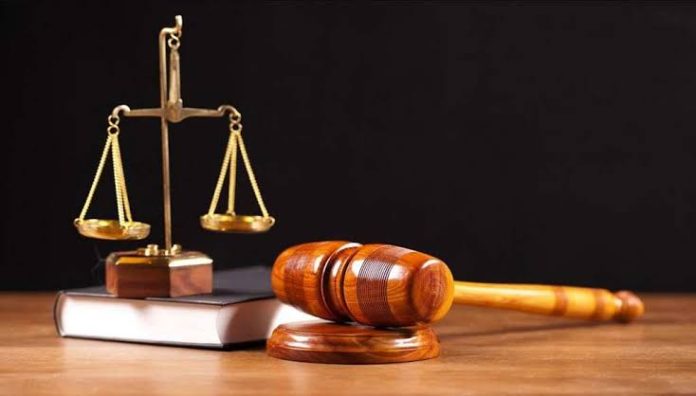In a significant push for justice sector reforms, the Rule of Law and Anti-Corruption (RoLAC II) Programme has emphasized the urgent need to make Nigeria’s justice system more inclusive for Persons with Disabilities (PWDs).
Mrs. Ajibola Ijimakinwa, Coordinator of RoLAC II in Lagos, made the call during a one-day state-level dialogue held on Wednesday, aimed at addressing the persistent challenges PWDs face within the country’s criminal justice framework.
The dialogue, organized as part of the broader European Union-funded RoLAC II programme, which is implemented by the International Institute for Democracy and Electoral Assistance (IDEA), sought to shed light on the critical gaps that hinder PWDs from fully accessing justice. According to Ijimakinwa, the event was a crucial step toward creating a justice system that is not only responsive but also tailored to the unique needs of individuals with disabilities.
Strengthening Justice and Human Rights for All
Building on the success of the first phase of RoLAC, the second phase is centered around strengthening justice systems and driving anti-corruption reforms, while also promoting human rights and gender equality. At the heart of these reforms is the inclusion of marginalized and vulnerable groups like PWDs.
Ijimakinwa noted that the dialogue was part of a broader effort to ensure that Nigeria’s justice system effectively serves all citizens, particularly those often left on the fringes of justice—PWDs. “The goal is to make the justice system more inclusive, responsive, and reflective of the diverse needs of persons with disabilities. This workshop will help map their experiences within the criminal justice system, identify barriers they face, and propose actionable strategies to improve their access to justice,” she explained.
By drawing attention to these critical issues, RoLAC II is driving a much-needed conversation around inclusivity in the justice sector—one that seeks to transform the way vulnerable groups, including PWDs, interact with the legal system. The outcome of the dialogue, Ijimakinwa stated, will form a roadmap for future reforms that not only focus on efficiency but also ensure that the voices of PWDs are heard, respected, and incorporated into justice policies.
Breaking Down Barriers to Access
For PWDs in Nigeria, navigating the justice system comes with a unique set of challenges. From physical barriers in courtrooms and police stations to systemic discrimination and lack of legal representation, these obstacles often leave them unable to adequately defend their rights. Many are left without access to information on their legal rights or face difficulties in obtaining legal representation. The RoLAC II programme aims to dismantle these barriers, offering practical solutions that will create a more equitable and just system for all.
Ijimakinwa pointed out that PWDs often face significant hurdles when trying to engage with the justice system, including bias, lack of accessibility, and a general unawareness of their specific needs. “Our justice system must be reformed to be more accommodating, ensuring that it is not only inclusive but also sensitive to the rights of all individuals, particularly those with disabilities,” she added.
Shaping a More Inclusive Future
The state-level dialogue is more than just a conversation; it is a call to action. Representatives from the Joint Association of Persons with Disabilities (JONAPWD) and other cluster groups were present to share their experiences and discuss the hurdles they encounter daily in seeking justice. Their collective insights will be instrumental in shaping future reforms.
According to Ijimakinwa, the workshop’s outcome will guide future justice sector reforms, focusing on inclusivity, accessibility, and the protection of human rights. RoLAC II’s commitment to ensuring that the justice system works for everyone is a testament to its broader mission of fostering a transparent and accountable legal framework in Nigeria.
As the dialogue drew to a close, the message was clear: Nigeria’s justice system must evolve to become more inclusive. The reforms that follow must be designed to break down the institutional and societal barriers that prevent PWDs from fully participating in legal processes, thereby ensuring equal access to justice for all.
The Road Ahead for RoLAC II
While the challenges are undeniable, RoLAC II’s work offers hope for a brighter, more just future. Ijimakinwa assured that RoLAC II would remain steadfast in its mission to support justice sector reforms aimed at addressing the needs of vulnerable groups, including PWDs. The programme will continue to engage with key stakeholders, including government officials, civil society organizations, and disability rights advocates, to ensure that the reforms are not only implemented but also sustained.
“RoLAC II remains committed to ensuring that Nigeria’s justice system is a tool of fairness, equity, and justice for all, especially for those who need it most,” Ijimakinwa emphasized.
This state-level dialogue represents a step forward in the ongoing efforts to create a justice system that is not only efficient but also inclusive. It serves as a reminder that true justice can only be achieved when every individual, regardless of ability, has a seat at the table.
For PWDs across Nigeria, the dialogue signals the possibility of a justice system that finally hears their voices and protects their rights. And for the nation, it is a critical move toward a more just and inclusive society.


